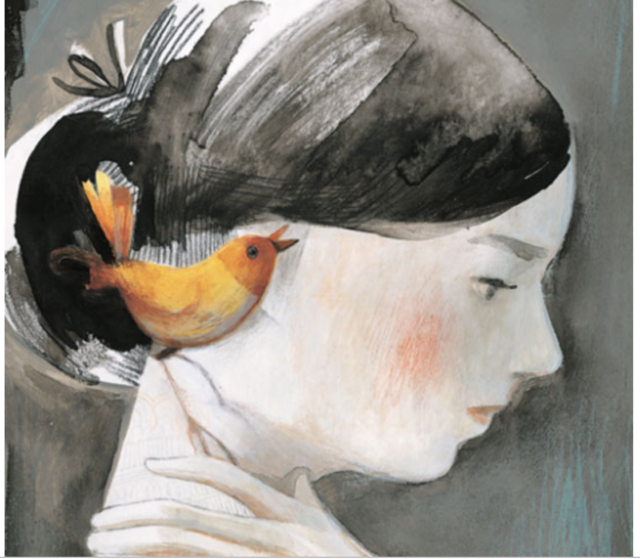
Inner dialogue with oneself is an essential human condition states psychologist and anthropologist Victor Rosenthal, in his recent book Somebody is Talking.
Murmuring, noisy, intuitive, singing, liberating, the conversation made with oneself is the characteristic of all human beings. From an early age on, one speaks to himself without any external trigger, relentlessly accommodates and comforts himself … in the form of talking aloud either through objects or directly with oneself… It allows us to reflect, to come back to our self while distinguishing us from our environment, and helps us to develop our sense of discernment for the good and the bad.
One wonders only when he is alone, and seeks the truth, said Einstein. The renowned child psychologist Winnicott defines it as an essential part of development of the “self”, starting with the acquisition of language around the age of two. An object, or a favorite toy usually becomes a significant character and talking buddy for the toddler as he learns to talk and play. The imaginary friend or inner voice nurtures the child’s emotional and psychological well-being as he grows from one stage of life to the next. It goes for children of all ages and for adults, too. The conversation “takes place in the space between fantasy and reality where the player feels vigilant with a particular sense of being. Particular in the sense that it is true as he brings his authentic self into play.”
The interactive nature of the inner dialogue allows one to define himself and his conduct in the world outside. Victor Rosenthal lucidly expresses himself in his inner dialogue:
When I talk to myself, I can comment on what is happening to me, recount it to me, and project myself into the future… The purpose of the inner voice is to help us imagine, create, to reflect about what’s going on around us and what’s happening to us.
The imprints of inner talk are traced in the brain, the brain imaging research highlights the zones that activate when the person initiates an inner talk and listens to it. The zones which light up during self-talk are the same zones which are activated when we speak out loud to another person.
Carl Gustav Jung defines inner talk as essentially human and known by all human beings in particular ways:
Everyone knows it, for it is particular for each person and each has an aptitude to converse with himself… Every time a person is plunged into an agonizing dilemma, he asks himself the question: “What should I do?”; he gives himself the answer. […] Our inner voice can drop the mask we wear in public which conceals our true nature.
Linking the inner voice to the voice of our conscience, Hannah Arendt in Judgement and Responsibility reflects on the consequences of acting badly wherein the inner voice whispers frankly and makes her aware of her misconduct : “By talking to oneself, everyone becomes their own audience and judge. If I act badly, I am condemned to live with the author of this evil in an intolerable intimacy.”
“The inner dialogue is an art which can be cultivated” states Victor Rosenthal, and its richness can navigate us in our quest for self-knowledge. It clears up and sheds light on the way towards understanding our emotions and behavior in different life scenarios and in discerning between what is good and bad for us.
We are not always aware of the emotions which the events plunge us in. When we speak to ourselves, we can get to understand them a posteriori and advance in our self-knowledge. Since we cannot hide anything from it, the inner dialogue can develop our deeper understanding and guide us to modify our behavior. If well directed, the inner voice leads on the paths of freedom.
In analyzing our self in a certain situation, our inner voice can help extract our authentic self motifs from the façade of the social hubs and medias, encourage us to “exist in a singular position”, and in this moment of being detached from the external exposures, “the external ideas once received and admitted” can be put aside. During attentive moments of intimate conversation, the inner voice becomes more salient and clear. Instantaneously letting go of the ego and its demands, one becomes willing to be guided by his inner guide. Victor Rosenthal defines this state as liberating, for it is leading one “on the paths of freedom.”
Duygu Bruce







